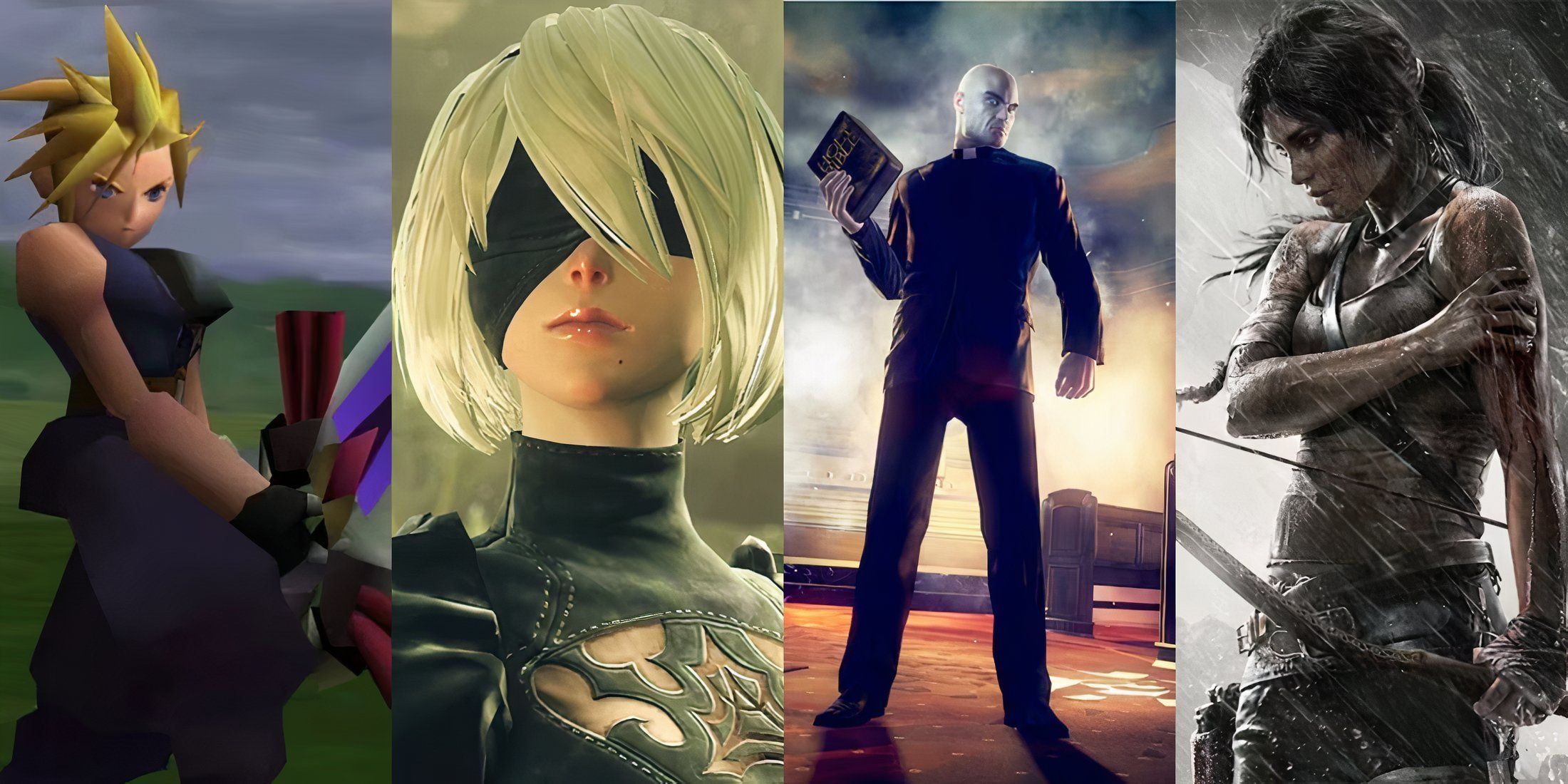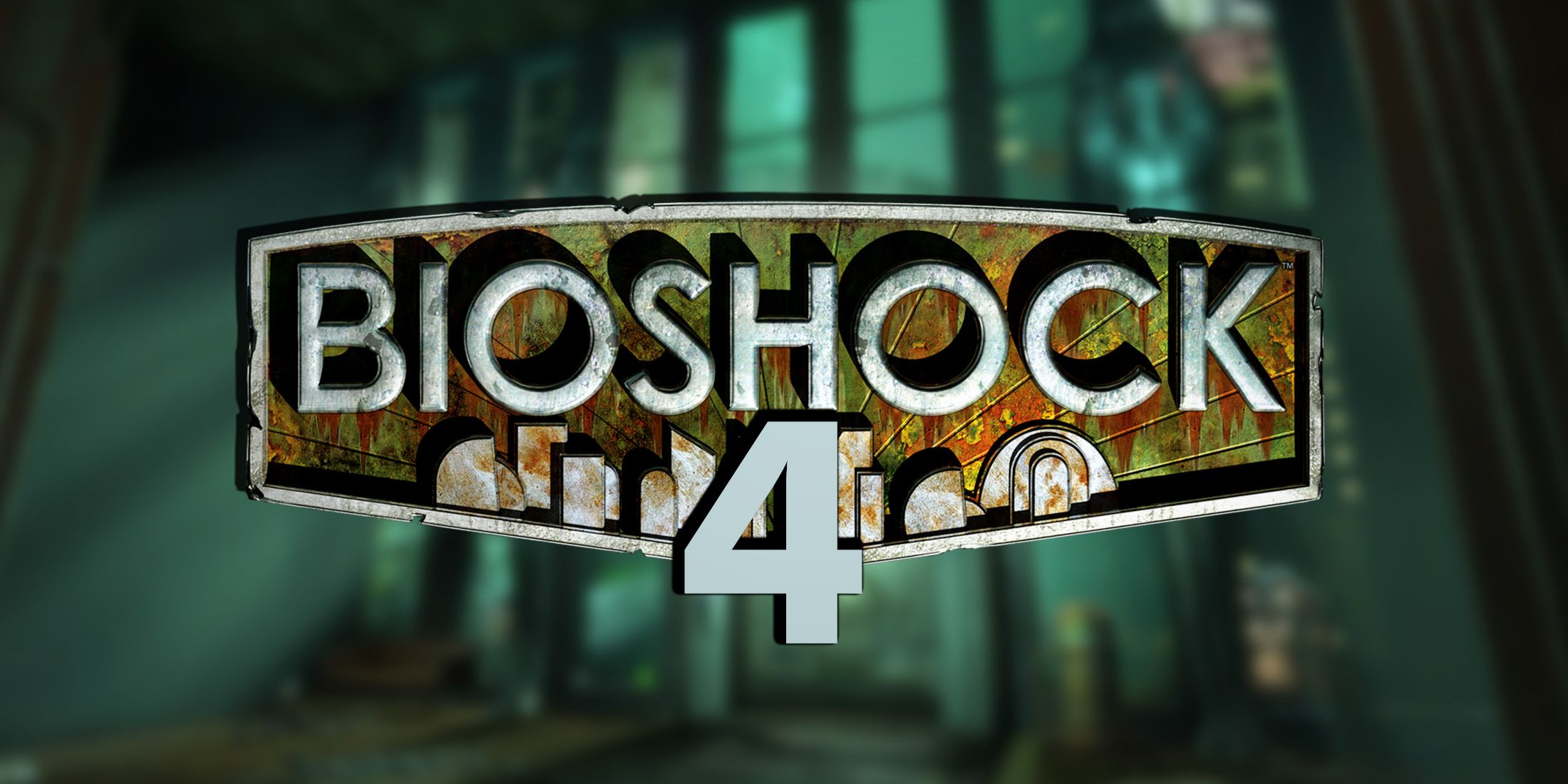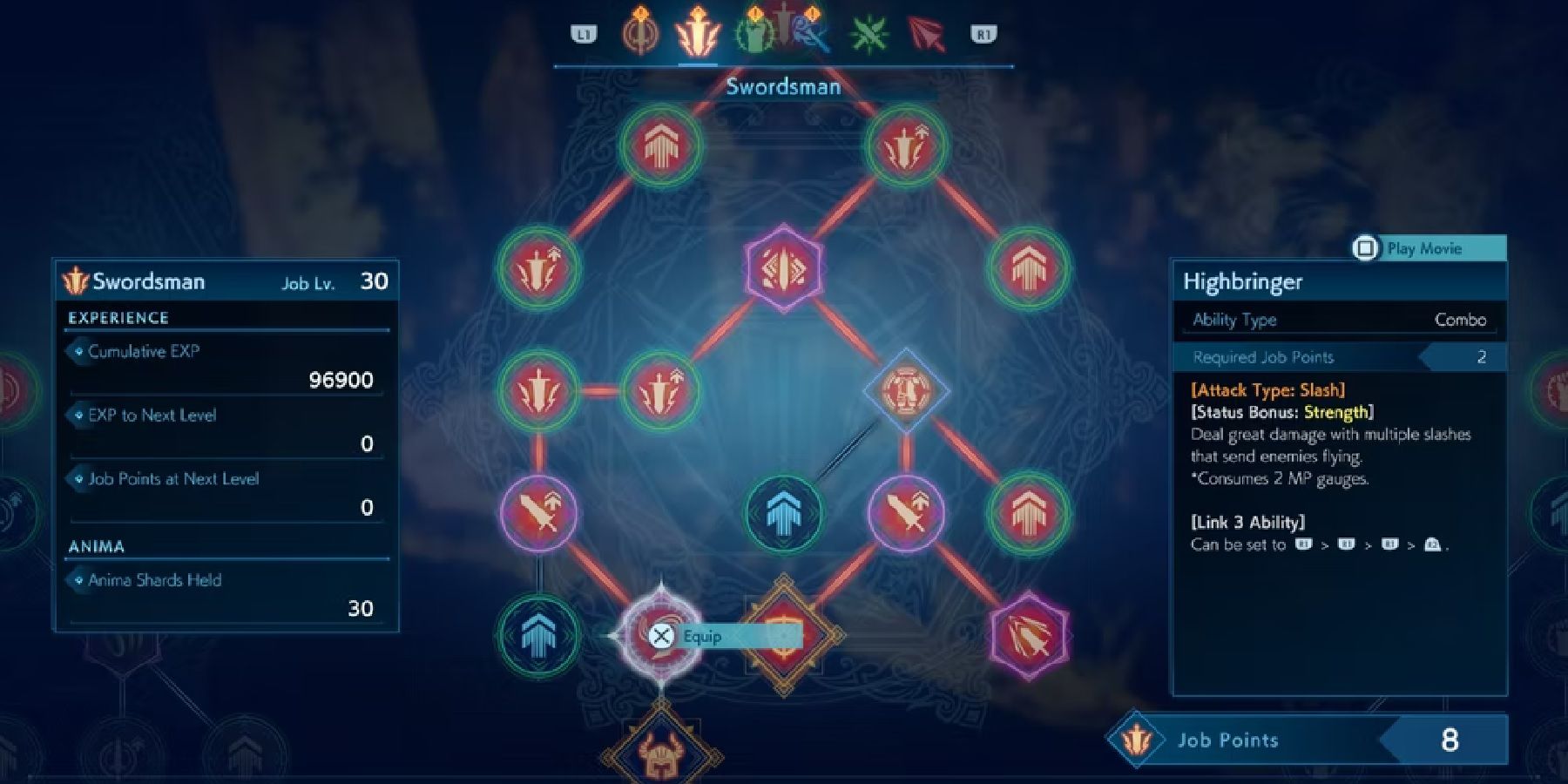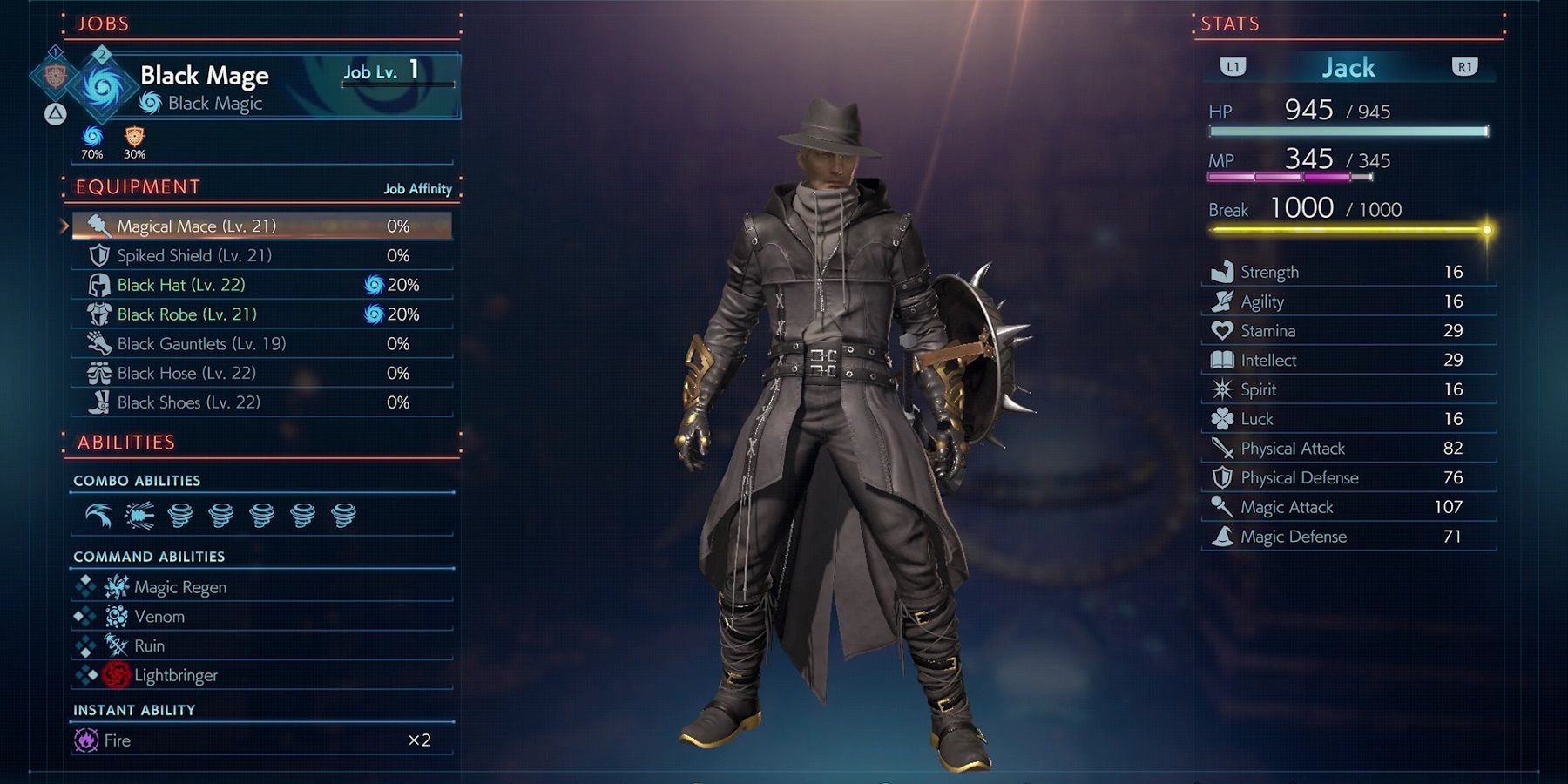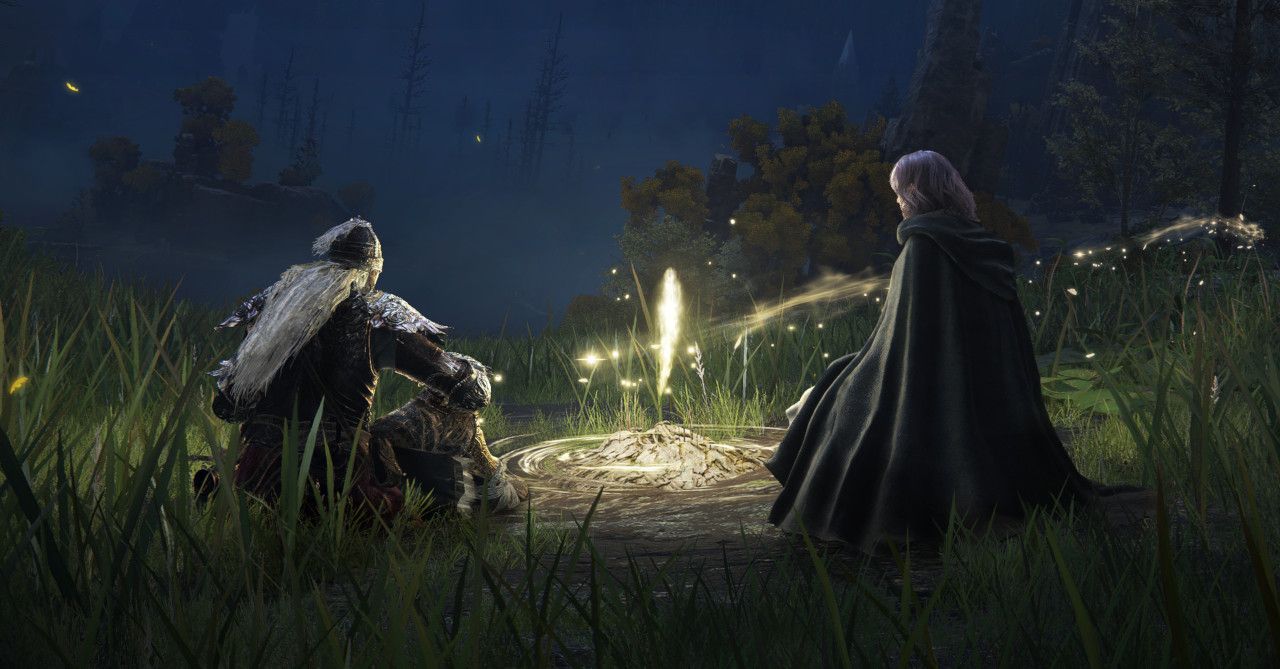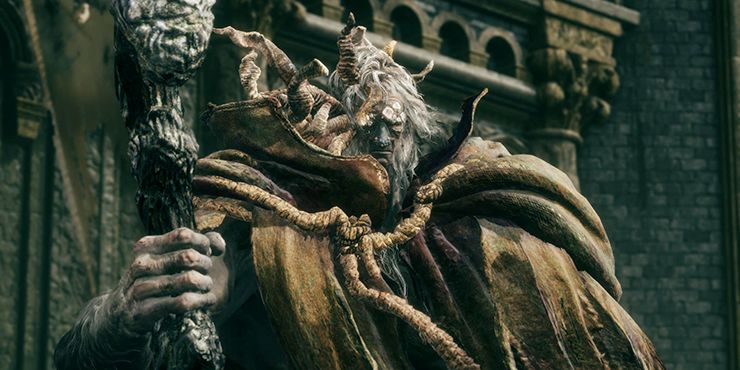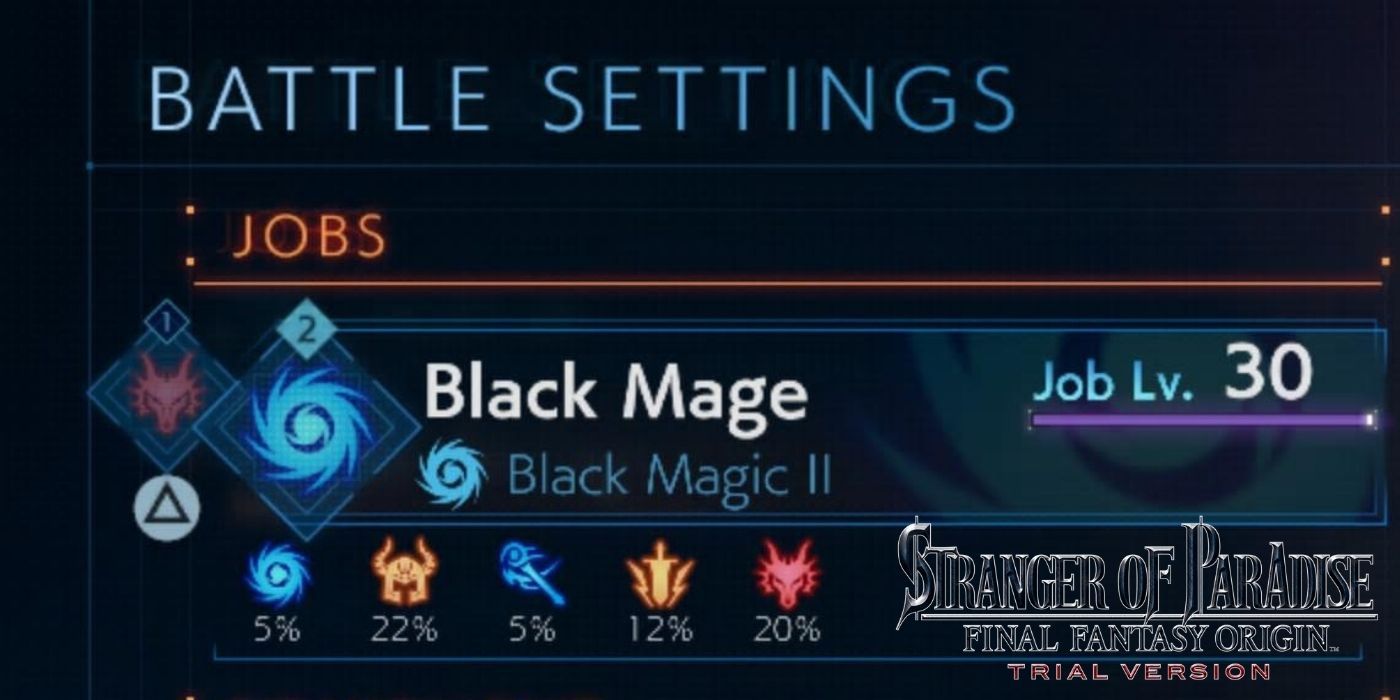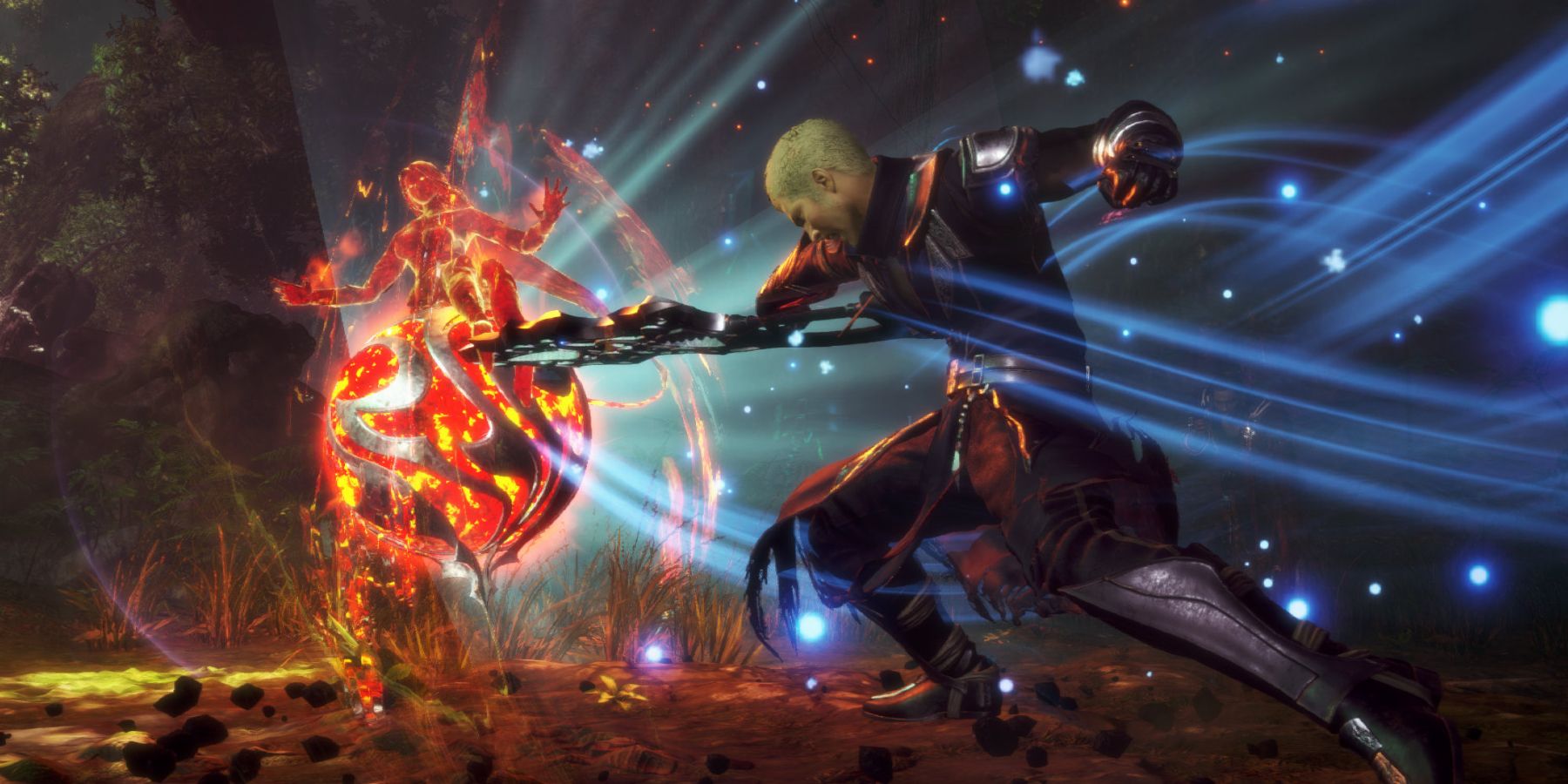A key aspect of the Soulslike genre is the ability to build a character as the player progresses, in order to grow stronger over the course of a game and more easily dispatch difficult bosses. However, Stranger of Paradise: Final Fantasy Origin has a unique twist on this system that has led to top meta builds in Elden Ring and other recent Soulslike titles, either from developers like Team Ninja or FromSoftware.
Every Soulslike tries to take its own path down character building, with some like Code Vein and The Surge letting players mix and match blood codes or mods, and others like Bloodborne letting players put individual points in specific stats. Now, with Stranger of Paradise: Final Fantasy Origin bringing a new Square Enix-inspired design to the genre, this latest title has the chance to redefine how these leveling systems can work.
How Stranger of Paradise Handles Leveling
The job system in Stranger of Paradise is nothing new for fans of the Final Fantasy series, which has had the separate jobs as a core part of the party dynamic since the very first game. However, to marry these job classes into the Soulslike genre, what Square Enix and Team Ninja have done is created a series of progression where playing as any specific class allows players to unlock passive stats and active abilities. Additionally, later classes are also locked behind this progression system, which means that the player is always building up towards new jobs to try out, gaining more power based on how they play.
This level of progression through jobs, and from job-to-job, gives players a direct path towards endgame strength with an emphasis on preferred play style. The progression system does have its drawbacks, such as changing styles requiring a not-insignificant amount of grinding in order to level through weaker classes. Players who decide they don't like Stranger of Paradise's Void Knight late in their playthrough might have to put in some extra time trying out a different class. Though, this is still much less obtrusive than the standard leveling system in Soulslike titles.
How Soulslike Games Handle Leveling
Generally, a Soulslike title will often follow the same path as the game the genre is named for, Dark Souls. This generally means starting off with a selection of character archetypes that act as rough guidelines for how the player might want to progress as they continue. However, the player is often free to put points into their individual attributes in order to better utilize some of the best weapons across games like Elden Ring, regardless of the template that was preset by the starting class.
It should be noted that not all Soulslike titles necessarily follow this method, but the major ones by developer FromSoftware, and those trying to copy the styling of those games the closest, often do. This winds up giving players a considerable amount of freedom over their build and the weapons they want to progress their characters towards mastering. However, while this can give players the unique ability to build towards specific play styles, or the best Soulslike weapons, the progressive cost of leveling up can make it easy to get stuck with a poorly planned build.
The Problems with the Current Soulslike Formula
Some recent games in the FromSoftware catalog have found ways to get around players being stuck in poorly crafted builds that make the rest of the game much harder as a result. A prime example of this comes from Elden Ring's Rennala, Queen of the Full Moon, who acts as a mid-game test of the player's build, as well as the way for players to respec their characters. However, putting the steep price of a rare/late-game item on this ability to redo a build means that many players struggling with some early mistakes are forced to just deal with it until they can farm the necessary materials.
This can cause a serious problem, where players stuck in the early-game either need to call for help from online players to reach the respec, or start their game over. While cooperating online can be one of the better aspect of a quality Soulslike, including Stranger of Paradise's own multiplayer, it isn't a consistent or long-term solution once the player community starts to die down. For example, it would be rare to find another player on Quelaag in the original Dark Souls at this point in the game's lifespan.
What the Job System Does to Fix These Problems
The more structured job system available in Stranger of Paradise's upgradable classes removes some of the choice paralysis that comes with the more free Soulslike system. Additionally, instead of it taking exponentially longer and longer to try updating a build that is going down an unfortunate path, leveling up a new job takes the same amount of time as any previous one. This means that the barrier both to starting out the game, and redirecting a build, is significantly lower than what is required of a Soulslike title.
It's a sacrifice of freedom for both convenience and direction, something that the leading Soulslike games have found to be difficult due to the formula laid out by the namesake of the genre. This could then act as a new formula for more games in the genre that want to appeal to more casual audiences the way that the recent Stranger of Paradise demo has shown with its easier difficulty options. While that isn't a call to include difficulty sliders in every Soulslike title, removing obtuseness and making basic mechanics like leveling more approachable could help ease players into the genre.
Where the Weapon System Comes Into Play
One of the most important parts about a build in any Soulslike title is the way that it affects weapon choice and the style of attack that can at times be customized from fight to fight. The weapon and armor rewards in Stranger of Paradise follow a very Diablo-styled system that gives a constant drip-feed of gear, which is progressively better when playing at higher difficulties. This removes some of the uniqueness of certain Soulslike weapons, but makes sure that players are always receiving the gear that is best for the level they are on.
The flip side of this progression of weapon drops is the way many Soulslike weapons are much more unique, but require upgrade materials that are either rare or expensive in order to make stronger. Most of a player's strength in games like Dark Souls and Elden Ring actually comes from these weapon upgrades, and changing builds requires not only changing individual stats but also investing in these weapons. This is where Stranger of Paradise's equipped jobs really shine, as the constant feed of new weapons means that players will always have access to the gear necessary to switch classes and change up play-styles on the fly.
Stranger of Paradise: Final Fantasy Origin releases on March 15, 2022, for PC, PS4, PS5, Xbox One, and Xbox Series X/S.

